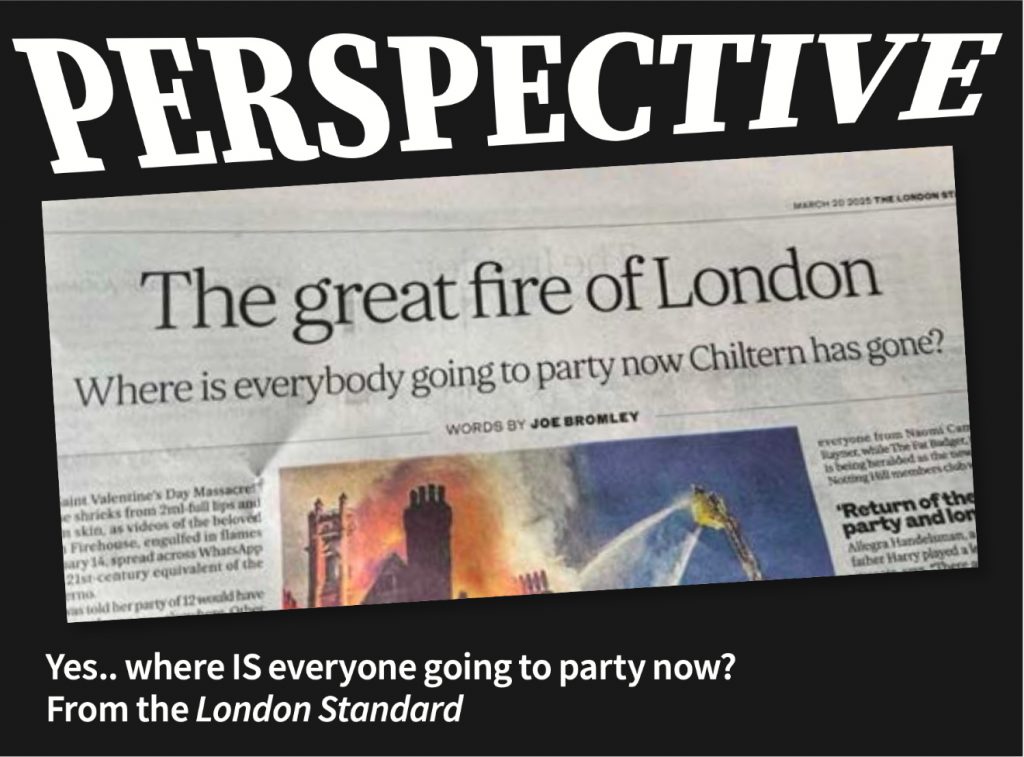“The REAL crisis in young men” by James Ball (TNE #428) was really interesting, though I don’t fully agree with assuming that in 10-20 years’ time, males now between the ages of 15-25(ish) will have the same rates of employment, wages, etc as men in their 30s and 40s today.
The statistics might not be static. For instance, in 2000, the ratio of female to male undergraduates was 52.5 to 47.5, which has since widened to 57 to 43. There may be a narrowing in the gap between female and male pay. If this narrowing is due to more opportunities being afforded to women, brilliant. If it’s primarily because young men are becoming less educated and less skilled, not so brilliant.
Overall, I agree that the “crisis” in young men is probably overblown. However, I think it’s also important to consider that there may be problems that affect young men specifically. Denying these, if they do exist, may further alienate men who feel elements of their life are unfair.
Will Hughes
The crisis for young men, and young people in general, is rooted in our attitudes to consumerism and employment. Consumerism has drowned us all in a comfort of shiny stuff, but whereas for us older folk that may be attainable because of final-salary pensions and the inexorable rising value of homes, for the young the pressure to have “the right stuff” is onerous and generally unaffordable.
As for employment, much of the fun in getting jobs and extracting adventure out of them, as I experienced in the 1970s, is now subsumed into the key performance indicator world of many mass employers. There seems to be no fun in employment now, just an almost religious demand to worship the company and maintain it above all else.
Keith Brisley
Perhaps the lack of father figures and poor discipline in schools are factors in the alienation felt by young men. It is easy to lose direction if you aren’t given boundaries and a good role model.
Elspeth Guyan
I am sure the lack of male primary teachers and increasingly secondary teachers has a negative effect on boys at school. I can imagine if there were 90% male teachers and 10% female teachers in primary schools, questions would be asked.
Stephen Brown

US obsession
Re: Alastair Campbell on the UK obsession with Donald Trump (Diary, TNE #428). You can hardly expect that America’s number one vassal state, the United Kingdom, should not have an obsession with Trump and whatever is happening in the US. We have a political and mainstream media class stacked to the roof with gushing Atlanticists, whose preference for adopting political and economic policy from the USA, rather than from our European neighbours with more comparable conditions to our own, has led us to the decline we are now experiencing.
Time for Europe and the UK to reconcile and start building a new “Third Way”, between the USA and China, or keep heading towards Airstrip One.
Paul Wildish
After French politician Raphaël Glucksmann remarked that since the USA has chosen to side with “tyrants”, they would have no further use for the Statue of Liberty, White House spokesperson Karoline Leavitt replied: “It’s only because of the United States of America that the French are not speaking German right now.”
I am sure France is, and has always been, most grateful for the bravery and sacrifices of the American servicemen and women who fought with the allies to liberate France during the second world war.
It is perhaps appropriate to remind Ms Leavitt, however, that had it not been for the victory of the French navy over the British at the Battle of the Chesapeake in 1781, Donald J Trump, JD Vance and even Ms Leavitt herself might find themselves obliged to speak English right now! Imagine that!
John Castell
Suffolk
Time to wake up
“Are you addicted to copium?” by Matthew d’Ancona (TNE #428) shows how the left needs radical change in their tactics. To wake up would be a good start!
If you keep wishing for the status quo, you are always going to be disappointed.
Adam Primhak
Whilst I agree with Matt d’Ancona’s view on “copium”, I take issue with his theory that voters are voting on more ideological grounds as opposed to what benefits them economically.
Matt cites Brexit as an example of this. However, how many times were voters told that everything would be fine if the UK left the EU? That all the warnings were “Project Fear” and that additional money would go to the NHS. The fact this was all nonsense is beside the point. How many Brexit voters voted to leave because they thought they and the country would be better off?
Trump has a hard core of supporters for whom he can do no wrong. That’s not everyone who voted for him, though. Vox pops after the election showed that many people didn’t like the man as a person, but voted for him as the best bet to secure the border, or defend against fears over trans rights, or because people were struggling financially.
The biggest danger is that so much misinformation will be shown that it’s becoming harder for people to know what to do.
Robert Allen
The potency of the old political machine has long been spent. Sadly nobody acknowledged its demise. We preferred to carry on as if all were well.
Donald Trump promised change rather than another resurrection attempt. Change is what he delivered, proving again we should be careful what we wish for.
And yes, the question of why Trump was re-elected is key to re-establishing basic boundaries, without which it’s difficult to know where north lies. If we don’t know that, how can we guide ourselves?
David Wright
Beating populism
Re: “Populism’s Monty Python problem” by Sunder Katwala (TNE #428). The key to taking on the populist right is to challenge them on social media platforms. I dithered about doing this. I even migrated to Bluesky… but that really is not enough. Disgusted as we should be about the far right resurgence, we have to challenge them head-on.
Progressives need to wake up to the fact that the far right, like the Devil, have all the best (superficial) tunes. Don’t put yourself in a silo. Challenge and confront.
David Newble
“Populism’s Monty Python problem” and several other pieces in TNE #428 echo the theme of the disintegration of the extreme right. And of course, we’re all familiar with the same phenomenon on the left. It almost seems as if there’s something about extremism that tends towards a demand for absolute doctrinal purity.
I chose that phrase deliberately. As a minister, I look at the “spectrum” of Christian faith, and I notice that we have similar tendencies at the extremes.
Tony Jones
Sunder Katwala’s piece on the split among Reform’s MPs makes several good points. But the Faragist parties’ problems go beyond personality conflicts, and the need to avoid putting off mainstream voters.
Farage’s malign genius has been to create electorally popular parties to the right of the Tories but decidedly not neo-fascist. But his electoral success is also his undoing: his parties are all defined by what they are against, and therefore implode on impact with real power and responsibility: becoming the main opposition in Lincolnshire in 2013, running Thanet in 2016 and forming a parliamentary group in 2024.
Are Ukip or Reform libertarian or authoritarian? Even more basically, are they racist or anti-racist? What would their policies be? Once they have to govern or at least cohere as a party, they implode.
Anthony Thacker
Hinckley, Leicestershire
On populism and Python, I’d like to point out that Nigel Farage is not the messiah – he’s a very naughty boy.
Keith Hobbs
Pithy nicknames
Peter Trudgill’s column in TNE #428, where he wrote of French soldiers in the Hundred Years War calling the English “les goddams”, reminded me of a modern linguistic change. As a child, I was taught that the French call British people “les rosbifs” after our supposed love of the Sunday carvery.
I am assured that this is passé: thanks to the territorial and mating calls of inebriated football fans and other tourists, Brits in France are now referred to as “les fuckoffs”.
Plus ça change…
Bill Thomas
Weston-super-Mare, North Somerset (studied under Prof Trudgill at Reading, 1979-83)
German perfection?
Re: Tanit Koch’s remarks about Germany’s electoral system (Germansplaining, TNE #428). Given that the UK elected a government with a huge majority on around a third of the vote, and that Ireland takes days to count and ends up electing never-ending Fine Gael/Fianna Fáil governments, Germany is not doing too badly. Especially as the odious Christian Lindner and Sahra Wagenknecht were both evicted from the Bundestag.
John Cullen
Russian traitors
Re: “The horror that spawned Putin” by Lucy Ash (TNE #428). More power to the Russian anti-war protester Lyudmila Vasilyeva – she is a similar age to me and will doubtless be aware that when the Soviet Union collapsed, one of the first actions of the oligarchs who now own and control Russia was to steal the pensions from those who fought in the Great Patriotic war.
We must remember and whenever possible remind them of what traitors the oligarchs, including their chief, were and continue to be.
John Simpson
What stitch-up?
I was surprised to read that Ireland screwed the UK by ignoring European Union rules and this was condoned by EU bureaucrats (Letters, TNE #428). Contrary to what Robert Parker writes, neither is true.
The minimum corporation tax agreement of 15% was only made in 2023 and was applicable from 2024, at which point the Irish tax went up from 12.5% to 15% in full conformance with the new rule. All treaties, directives and agreements in the EU are passed by the EU council (of the democratically elected governments of the sovereign members) and the EU parliament.
EU bureaucrats implement the decisions of the parliament and member states. They cannot make rules themselves. If they were to favour anyone, it would surely be the three most powerful states with a total population of 200 million rather than one state, population five million?
Peter Basford

BELOW THE LINE
Comments, conversation and correspondence from our online subscribers
Re: Josh Barrie’s visit to The European pub (formerly a Wetherspoon) in TNE #428. I recommend the Neverspoons app, which I have on my phone so I can avoid spending any money in Tim Martin’s businesses.
Russell Sage
Re: “Pick Putin’s pockets to pay for the war against him” (TNE #428). I totally agree with Paul Mason, and I cannot understand why, with all the pain, hurt, terror and loss of life and property that Putin has caused since he started his unlawful invasion of Ukraine, politicians are so reluctant to spend this money.
Charles Thomas
I’m a big fan of the Rats in a Sack column. However, I suspect the stories are being selected specifically to raise my blood pressure!
Christopher Harrison
Is Keir Starmer really the “grown-up in the room” (TNE #427)? He’s kissing Trump’s backside instead of standing shoulder to shoulder with Canada. The delusional belief in our “special relationship” is absurd. Canada had THE special relationship – look where that landed. Britain needs to be back in the EU, full stop. The denialism is absurd. The majority of the electorate wants it, the economy demands it, security needs it.
Lauren Smith
Thanks for Everyday Philosophy’s opposition to corporal punishment (TNE #427). I, like many others brought up in the 1970s, suffered this, although for my dad it was a slippery slope as he realised just how much he enjoyed it. The beatings only stopped when my sister and I grew big enough to fight back.
I have three daughters and have never laid a finger on them. It doesn’t work and is completely unnecessary. I want a complete ban now.
Wendy Hodgson
The day corporal punishment was banned in Scotland, the master at my daughter’s primary school, who walked around with a leather strap in his pocket, quit. The headteacher had some difficulty in explaining his abrupt departure.
Helen Dunwoodie
My life experiences are similar to Nigel Warburton’s. Thank you for this intelligent piece of writing.
Audrey Bailey
JOIN THE CONVERSATION
Subscribe and download our free new app to comment and chat with our writers



